July 05, 2006
on Leadership - how to achieve the impossible with the five phases of _win-win_
Last week's post introduced negotiation as a battle between win-win and win-lose. Win-win sits in contrast with win-lose. The two do not go together. This gives us a few things to consider.
- Which are we in?
- If in win-lose, how do we defend ourselves?
- And, if in win-lose, how do we move across to win-win?
- If in win-win, *how do we do it?*
Today's entry addresses how to do win-win, the last of the above. It's only a start. You will not win by reading today's entry - you will just see a glimmer of the end-point today. Let's get stuck in.
Win-win negotiation is done in phases. There are five of them:
- Relationship. Getting comfortable with each other, establishing common language.
- Exchange. Exploring views and exchanging information (but NOT passing judgement or pushing anything).
- Solutions. Crafting of potential solutions, again without judgement.
- Selection. Selecting and refining the winning solution.
- Implementation. Ensuring delivery.
The above might be considered the strategy of win-win. It is the high level framework within which we work.
P1. Relationship
"When individuals having no established relationships are brought together to interact in group activities with common goals, they produce a group structure with hierarchical statuses and roles within it." Sherif's Hypothesis, part 1
The essence and mission of relationship is:
to establish our means and methods of communications.
How do you talk to someone you've never met before?
It takes a while for a rapport to be established - to understand how it is that the other side likes to communicate. How this is done is totally open - business lunches, beer, social engagements, mutual acquaintances, or just chit chat over the coffee machine.
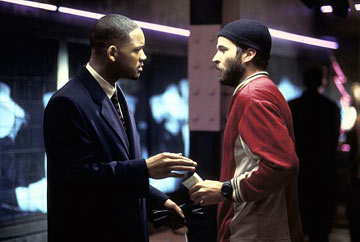
There are two main mistakes in developing a relationship. Firstly, rushing things. That is, the speeding up or dropping completely of the phase. Rushing into the negotiation without having established a rapport will result in various errors in protocol, and there will be no basis on which to fall back on when suspicions arise.
Secondly, introducing elements of the negotiation-to-come in the hope of getting an early lead. This won't work in negotiation; it is a win-lose tactic, and will rebound later on.
It takes a fair amount of experience to figure out when to move on to the next phase, but this is akin to normal social skills. Both of you will know when you are comfortable to move on, because your relationship will tell you that.
Relationship may appear to be an odd investment to make, but it is important to keep in mind that win-win is a long term strategy. Any time spent early on in establishing relationship is paid off over many future rounds. If those future rounds aren't expected, this would question the very foundation of the negotiation. But even then, in those future rounds, expect to drop back into Phase 1 on a regular basis.
P2. Exchange of Information
"go hard on the facts, soft on the people." [Old Dutch Expression]
In phase 2, we seek to share information, and only information.
It is an act of faith in win-win negotiation that there is a solution, or at the least we are better off discovering the impossibility of the solution, than going to win-lose. So in order to find that solution, we have to move away from the obvious -- if it was obvious, we wouldn't be here, right? -- and dig deep into the non-obvious.
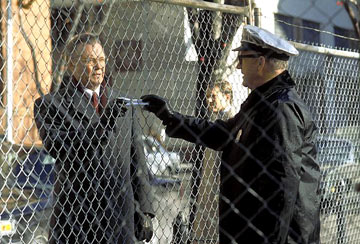
In order to move forward into the non-obvious, we need real information. Hard facts, scary fears, the needs that the other person wouldn't ordinarily share with us. That's our goal:
to share the facts, needs, and fears necessary to craft solutions.
Now you see why Phase 1 was so important: In order to delicately express "home truths," "secret needs" and "fears," without launching into the verbal warfare, we need a solid relationship. How strong? One strong enough to get us past the Prisoners' Dilemma economics of cheating with the information we are about to share. One strong enough to let us suspend our prejudices and defences for a while, to really step into the other guy's shoes, without fear.
How do we go about this? The first and most necessary lesson is to separate out the information from the people. Facts are are not personal unless you make them so, so we need to avoid the language of "he said, she said," as that leads to personal attacks and defensiveness.
Personal opinion is dangerous. It is almost always outwards, accusatory, indeed that's what we mean by personal opinion as opposed to neutral observation. It takes our fears and ascribes blame for them to the opponent; it assumes the opponents fears and creates a need for defence.
Yet, those fears are real. Underlying those fears are real needs, real facts, and real clashes for which we need real solutions.
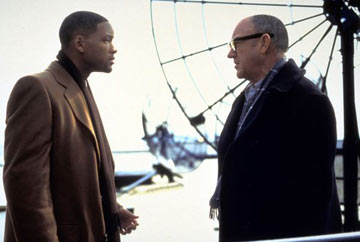
In order to find the non-obvious, we need to change our very behaviour. This does not mean avoiding the fears and hiding the needs. Far from it:
- We suppress the individual, and we step aside from opinion.
- We search for the actual facts that we need to deal with.
- We share our fears, and express our interests.
- We acknowledge each other's fears and interests.
- And we avoid conclusions or positions like the plague!
The techniques of win-win negotiation are replete with ways to express these in a neutral and non-accusatory fashion. There is a lot more to this than can be pressed into these few words. In brief example, consider that
"You choose to endanger users by blocking information from them."
Sound familiar? This statement is disastrous. It ties dangers to one person's actions, thus it is threatening. Because of the personal claim, it is accusatory. As it includes a direct accusation of intent to harm, it's also distracting from any reality. In the face of such an attack, defensive barriers will go up and no forward movement is possible.
How then can we express our fears, which really are present in the above, notwithstanding that I thrust the blame for those fears on some poor innocent bystander?
That is the essence of the exchange of information. We need to extract the facts, and present them neutrally.
"Users appear to be suffering from frequent attacks, which is a grave concern of mine. What information does the user have to deal with those attacks? One view has it that the user can't deal with any information, even if they were given it. Another view is that some users can deal with it, and they can help us refine what would work for the rest."
My fears are present. The blocking of information is recast as a question to establish what is present. And, there are different ways of looking at this, so let's get both of them there and see why each is attractive, and what problems exist with both sides.
Remember, this phase is about searching for what we know. Once we get facts out on the table, in a neutral setting, then the solutions will start to emerge by themselves. There is no obvious transition to the next phase, it simply happens as a consequence of the surfacing of the hidden information.
P3. Exploring of Options
As the facts come tumbling out, in general, lots of good ideas will also come out. If there is a solution to be found, it will start to become apparent when enough new information hits the table. When one solution turns up, it will often be quickly be followed by others, or variations.
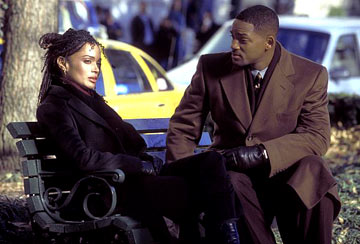
In the exploration of options, our intent is to develop them, and to compare and contrast them. Our goal is to:
to explore many solutions, as they arise, without prejudice, and without conclusion.
In exploring, our tendency is to rush in and grab the first that comes to mind. This is a mistake -- remember, if it was that obvious and that easy we wouldn't be here! The difficulty of our position is testament to the complexities we face, so let's treat those difficulties seriously and not just grab at the first idea, declare victory and head for the bar.
This is like whiteboarding. Or brainstorming. The difference between those terms and negotiation is that we are placing the techniques in a context to get to there, and onwards, not just announcing that at today's meeting we will whiteboard and nothing else.
In exploring these solutions, we use the full gamut of enthusiasm. Try and draw people in, to express ideas. Let a few arguments run on. Look for the crazy ideas, all that good brainstorming stuff.
We try to craft at least three solutions, as that makes it dynamic (it breaks any deadlock between two solutions, and it encourages any fourth or fifth). Cross fertilisation is good too.
P4. Selection
Once we have started the free and open exchange of information, then slowly the solutions that arise. Once the the solutions start their dance, they will also naturally sort themselves out into various preferences.
Now is the time to recall open exchange. The surfacing of interests early sets the stage for an honest understanding of what benefits who and when. This allows for a fuller resolution of the issues, with shared benefits.
The danger here is that as the prize comes closer, some will realise they can win more than others. There will be a tendency to sink into the mire of politics; you should call these pullbacks by surfacing those as interests. "Yes, Bob does need to deliver a win to his department, but we need to balance that against..."
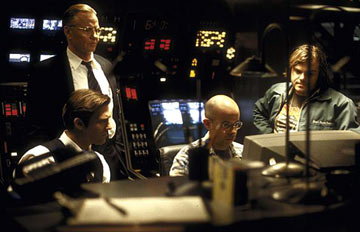
Recall, there are multiple rounds in the win-win game. Those people who push too hard this time to get their big win will be back in the ring next time, because they want to win again. But then, everyone will recall who made out like bandits and those bandits will suffer, as will the entire group.
P5. Implementation
This is the Follow-up phase. Because there is a next round, it is important to implement the chosen solution fully and make sure that all the parties enjoyed their benefits. That is, when you go into the next round, if the previous round stopped after the talking, there won't be much point in another round.
Only delivered solutions feed into the next round, and those that deliver the solution will earn more respect in the next round.

That concludes a shockingly brief discussion of the five phases of win-win negotiation, as well as the overall discipline of negotiating itself. It's not quick. It's not sure. Today's title was a bald-faced lie.
I suggest however that win-win is a whole lot more rewarding than anything else on the table.
I'll leave you with three caveats.
There remain more questions than answers, and while I don't want to take all the fun of learning away, I'll tell you where most of them are answered: You need to learn the many, various and peculiar tactics of negotiation. If you ever get a chance to go on a course or browse the net about negotiating, you will find lots of tactics to assist.
Those techniques all fit within the general rubric of negotiating, within the 2x2 of the prisoners' dilemma, within one of the two sides, or in the interaction. It makes a lot of sense to know where they fit within today's context of five phases, or how they assist in the list at the top. Unfortunately, most writings on the subject are weak, so you will have to apply the framework yourself.
Next. Learning negotiation is almost a lifelong quest. It does involve a change in your behaviour, unless you happen to be one of the people who have the skills already beaten into you (pop quiz -- who are they? yes, they exist). Changing behaviour is very tough, especially for techies.

Finally, be aware that win-win will not work with a win-loser. If someone is doing win-lose on you, trying win-win will simply fail. So it is essential for you to learn how to recognise a win-loser. Once you get a feel for the above five phases, you'll find it easy but very frustrating -- instead of sharing and taking risks, they keep attacking and trying to abuse the situation.
If you find yourself in a community, try to bring everyone along at the same speed. There's no point in trying to teach the "leaders" win-win, if the techies are all resorting to their natural state. At the meta-level, this is truly a cooperative effort.
Posted by iang at July 5, 2006 01:04 AM | TrackBackThanks for the post (when are the rest coming?) I've never conciously thought about win-win and win-lose in a theoretical sense. Hopefully, and I think this is the case, I've had a decent sub-concious understanding. Otherwise I've been a sucker for a while! Anyway trying to detect win-lose players in my day to day work for the last few days has been instructive. Especially within whatever organisation I'm working in I *always* assume win-win and get angry and frustrated when people go for win-lose.
Cheers,
Michael
http://www.ft.com/cms/s/71037190-217c-11db-b650-0000779e2340.html
an alternative view!
Posted by: FT on leadership and women at August 2, 2006 08:08 AM